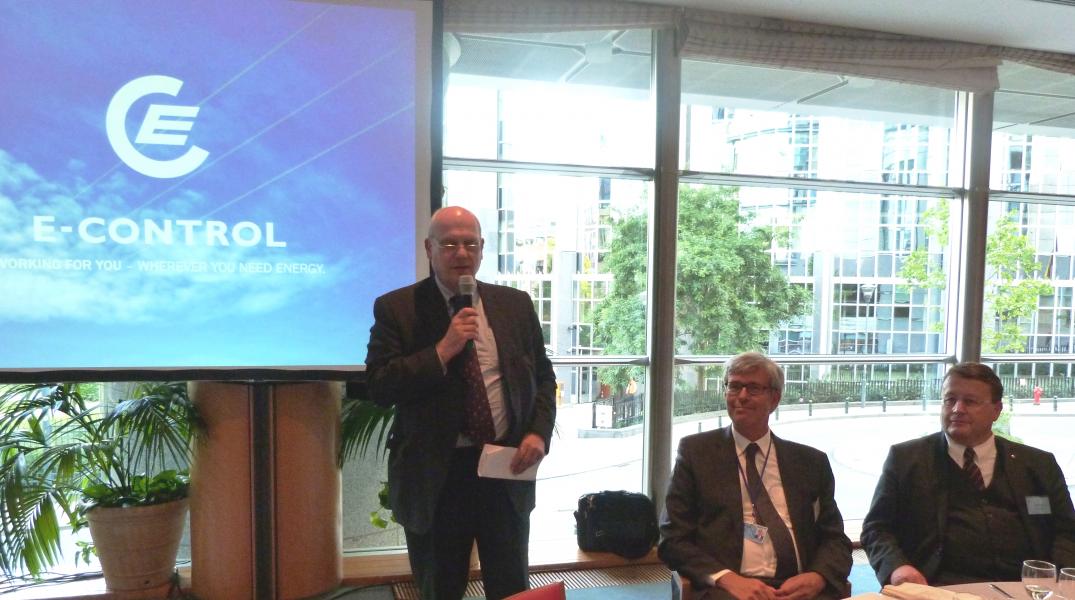Energy Trading in the EU : Sector specific regulation and market oversight
Austria’s Chief Energy Regulator Mr. Walter Boltz headed a lively debate on EU-wide Energy Trading highlighting the importance of transparency in energy wholesale markets. The debate was well received by MEPs and other stakeholders who actively engaged in a direct discussion with Mr. Boltz. Contributions covered question of key importance in the framework of the new Regulation on Energy Market Integrity and Transparency (REMIT).
In contrast to existing financial market regulations, REMIT aims at specifically targeting energy markets and providing tailor made rules for trade in electricity and gas wholesale products. Mr. Boltz strongly supported such a targeted regulatory approach and advocated in favor of an explicit energy regime. He stressed that energy products and regulatory priorities in energy wholesale markets do significantly differ from those in purely financial markets. This can be explained by the fact that Financial Market Regulators are mostly concerned with upholding financial market stability, while Energy Regulators give more priority to market monitoring and would, thus, be best placed to establish market oversight routines that are still underdeveloped in the field of wholesale trading. Considering the significant growth in cross border trading activities across the EU, this becomes even more relevant. Consequently, Mr. Boltz, argued that the Energy Regulators rather than Financial Market Regulators should be in charge of overseeing trade in their markets.
A successful pilot project on the collection of (EU-wide) trade data carried out by the European Energy Regulators under the leadership of E-Control was impressively reported on by Mr. Boltz and not only confirmed the technical and economic feasibility of a sector specific regime but also provided valuable insight into how the collection of trade data can significantly contribute to detect market abuse. Mr. Boltz explained that several tools were developed allowing for data interpretation and observance of trading behavior from which conclusions on possible insider dealings and other illegal market abuse practices could be drawn. A central data reporting system at EU level would make most sense in the eyes of the Energy Regulators in order to catch a comprehensive glimpse of the dealings in the entire market. As it is foreseen under REMIT, traders will consequently be obliged to report their dealings for the sake of market transparency. In order to avoid deals based on insider information, market participants will also be required to make additional information public such as information on production outages. Mr. Boltz discussed the importance of market transparency and the dangers of market abuse particularly intense with representatives from the gas industry as according to the latter’s view gas and electricity producers should be treated differently in terms of publication of outage data. While the gas industry does not deny that gas production outages need to be reported, it still argued against immediate publication of such information which, as it suggested, could still be done after at least parts of the missing gas have been purchased. Mr. Boltz heavily opposed this view pleading for fair markets in which distortions due to the withholding of information cannot be accepted.
The Regulation on Energy Market Integrity and Transparency (REMIT) has very recently been finalized and will undergo a final vote in Plenary this fall.



